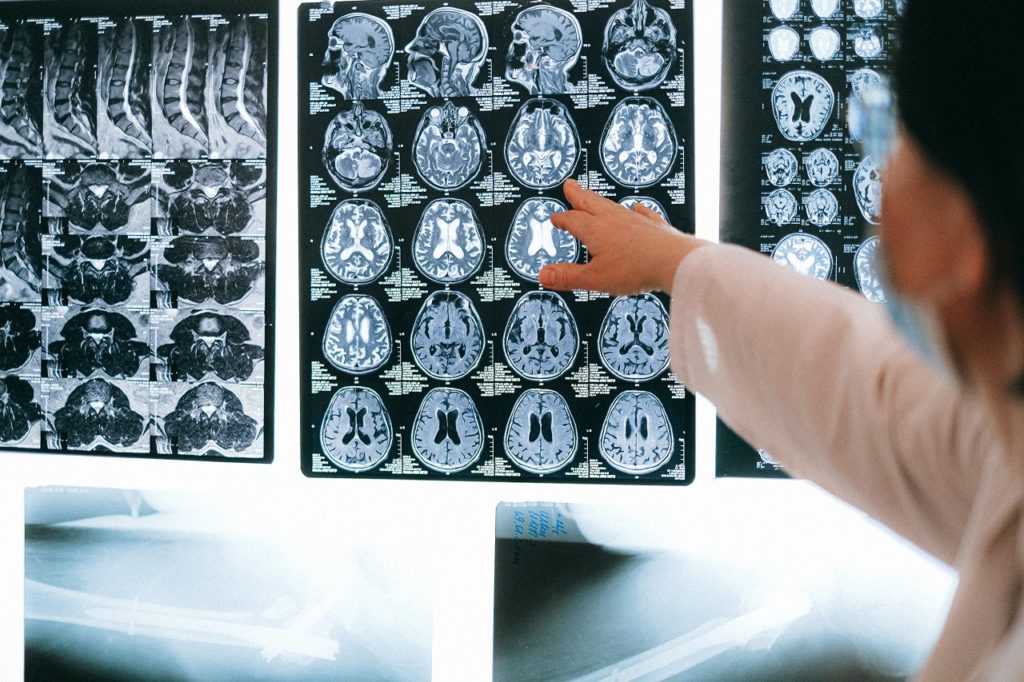Traumatic brain injury (TBI) is among the top causes of death and disability in the US. Every year, approximately 2.87 million hospitalizations, ER visits, and deaths occur, with children accounting for more than 837,000 of these cases.
Contrary to what you might think, you don’t have to be struck by a hard object or involved in a car accident to suffer from a brain injury. TBIs can be the result of a fall, sports accident, or even a work-related incident.
In short, any trauma to the head or neck area could potentially cause bruising, bleeding, tearing, or swelling to the brain. Depending on the circumstances surrounding the incident, you can file a lawsuit if the injury resulted from another party’s negligence.
If that’s the case, you’re going to need the best brain injury attorneys in your corner. Here’s everything you need to know.
Types of Brain Injury
First off, let’s examine the different types of brain injuries that exist. These broadly fall into two main categories depending on the causative agent.
1. Traumatic Brain Injury
TBIs result from blunt force trauma to the brain resulting in a skull fracture. They may arise in personal injury cases like motor vehicle accidents or slip and fall incidences; criminal cases like assault and battery; diffuse axonal injuries; penetration injuries; contusions; and concussions. Let’s examine each of these in more detail.

Diffuse Axonal Injuries (DAI)
These are brought about by extreme rotational movement or shaking, which then creates tears in the structures of the brain as the skull shears its (the brain’s) edges. These tears end up creating neurochemical disruptions in the normal functioning of the brain, which may lead to a coma, permanent brain damage, or, ultimately, death.
Signs of brain injury vary widely depending on the specific brain structures that were torn in the process. An individual with a DAI brain injury may exhibit memory disruption, olfactory disruption, motor function and sensation disruption, and several other disruptive symptoms.
Penetration Injuries
These come about when sharp objects pierce through the skull and brain. This may result in lost tissue as the object exits the skull, as well as the rupture, tearing, and shearing of accessory brain tissue. If an individual survives, they are left grappling with major long term effects that may not improve over time.
Contusions
The term contusion refers to localized bleeding in the brain caused by direct impact trauma to the head region. Contusions may require surgical removal since the formation of a blood clot at the contusion site can be fatal in most cases.
In other instances, when the force of the impact is great, the brain may slam into the opposite side of the skull. This may, in turn, create yet another contusion at the second site of impact.
Concussions
A frequently asked question we get is – Is a concussion a brain injury? The short answer is, yes, it is. Like a contusion, concussions are also caused by direct impact trauma to the head region and are often accompanied by a loss of consciousness. However, this may not necessarily be the direct result of the trauma.
Concussions are no doubt the most common type of TBI and may come about due to whiplash in a car accident, shaking, falling, or getting kicked, punched, or shot. In severe cases, concussions may result in permanent brain damage.
2. Acquired Brain Injury (ABI)
Unlike TBIs, acquired brain injuries aren’t necessarily the direct result of the external application of force to the brain. But that is not to say that an acquired brain injury cannot be “caused” by the actions of others. Strangulation and drowning incidents have been known to cause ABIs.
In most ABI cases, however, plaintiffs often sue the medical providers for worsening their condition, or not having addressed it in good time with a proper treatment plan, which could have prevented permanent brain damage.
There are generally two main types of ABIs.
Anoxic Brain Injury
Anoxic brain injury, or anoxia for short, is a brain condition brought about by oxygen deprivation. If, for whatever reason, the brain doesn’t get enough oxygen, cell death occurs within a matter of minutes. This may result in severe damage to various brain systems and can even be fatal.
Several different kinds of anoxia exist, with the most common ones being:
- Standard anoxia – where the brain doesn’t receive enough oxygen for any number of reasons, including respiratory illnesses
- Anemic anoxia – where the blood doesn’t carry enough oxygen to the brain
- Toxic brain injury – where toxins block the normal uptake of oxygen by the brain
Hypoxic Brain Injury
This is a lot like anoxia, except for the fact that the deprivation of oxygen is not absolute. So, the brain does receive some oxygen, but at dangerously low levels. Cell death may occur, albeit at a much slower rate than in anoxic brain injury cases.
When Should You Hire a Brain Injury Attorney?
Whether you or a loved one suffered a car accident brain injury or any other kind of brain injury that resulted from the negligent actions of a medical practitioner, you need to consult with an experienced attorney as soon as possible.
Keep in mind that the statute of limitations clock starts running from the date you incurred the injury. So, if you plan to hold the negligent party accountable for their actions, you need to move with haste.
The long term effects of a brain injury may not be immediately apparent. Ensure that you get medical care as soon as you can, and frequently thereafter if you suspect that you may have suffered some sort of trauma to the head.
Here are some symptoms to look out for when evaluating the potential for brain injuries.
- Confusion
- Dizziness that may or may not be accompanied by nausea
- Feeling weak or numb on one side of the body
- Frequent loss of short term memory
- Severe headaches
- Unusual fatigue or sluggishness
Hold Negligent the Negligent Parties Responsible
If you do decide to pursue a lawsuit, your brain injury lawyer may proceed in one of two ways. They will either sue on the negligence theory of liability, where they’ll prove that the other party failed to exercise their legal duty of reasonable care, or they may pursue a product liability theory if the defective medication you were on caused the brain injury.
Either way, you’re going to need the best brain injury attorneys in your corner.
If you have any legal questions concerning brain injury claims, you can also chat online with a Laws101.com attorney.
